Thank you for all your kind comments which encourage us to share our experience.
To Lake Bogoria
I will not include days and dates in our stories anymore, we are now so disconnected that we do not know what day it is. Since our departure we have been experiencing regular showers, the weather is overcast and the temperature is worthy of a summer in Belgium. It rained heavily all night. Fortunately it stopped in the morning. 14 degrees, we are getting a bit tired of this weather. We pack up all our gear and head off for a day on the trail to Lake Bogoria. We quickly enter the bush on mostly laterite tracks, rolling and not very technical, a good start to build confidence for the off-road novice that I am.
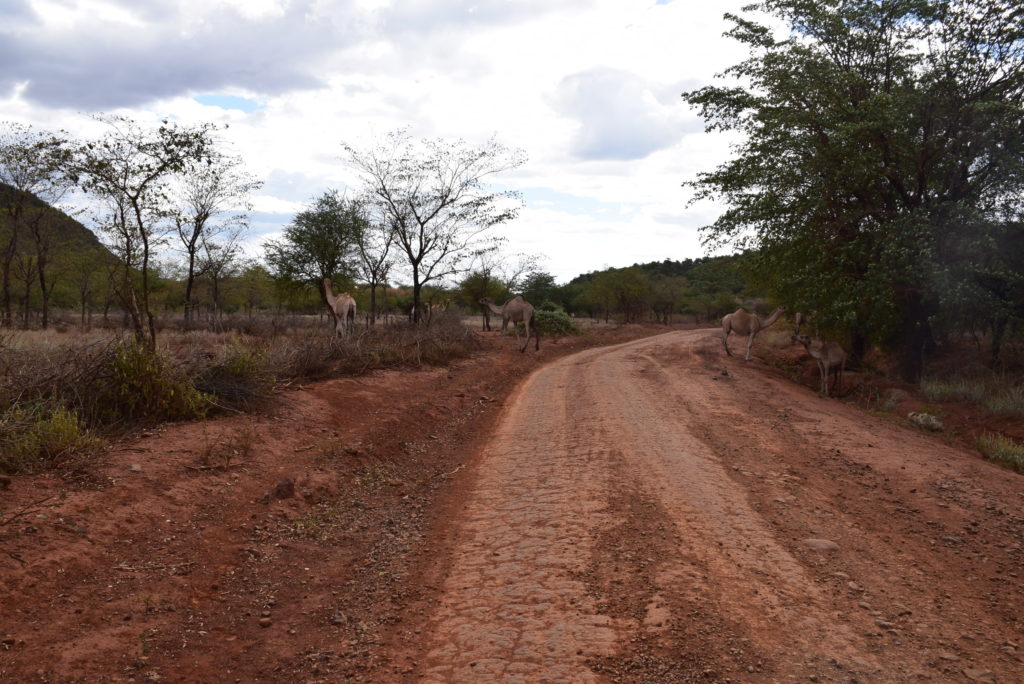
The temperature soared to 37 degrees. Incredible the difference in temperature over a few dozen kilometres. We have been grumbling about the heat, and now we have it. Despite everything, the heat remains bearable, we are well helped by our equipment designed for the heat with multiple ventilation grids that allow good air circulation. It’s especially when we take a break that the sun’s bludgeoning is immediately felt; staying in the sun is out of the question at these moments. Hakuna and Matata also suffer from the heat, the fans are running at full speed, expelling very hot air on our legs and boots. At times we feel as if our feet are on fire. This does not prevent us from having a lot of fun. In the bush as in the city, as soon as we stop, people arrive.
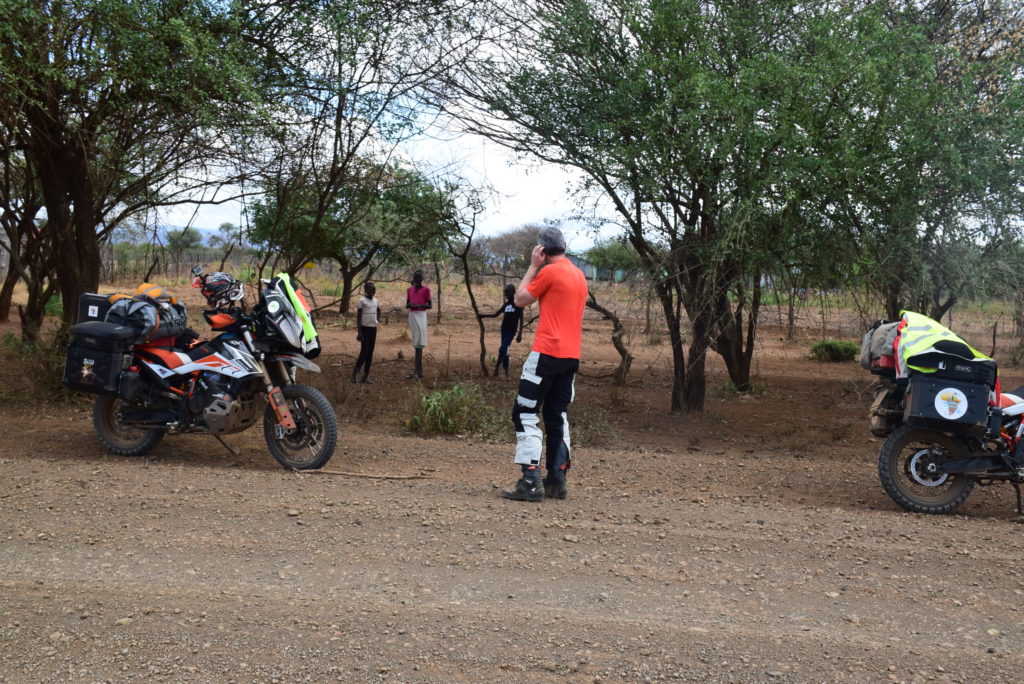
At the end of the day we arrive near the Bogoria lake. François decided to go to the edge of the lake, he took a narrow, trialising and quite technical path. It is made of black volcanic rocks. I procrastinate for a few seconds before deciding to follow him. I have to learn, I tell myself. It was perilous to get to the bottom. But above all I’ll have to go back up. There is a passage with a step that is quite difficult for me. As soon as we start to climb back up I have this passage in mind. I progress behind François, inspired by his trajectories, and I manage relatively well. Then comes the famous passage, the front wheel passes the step, I think I’m saved and there, the wheel bumps on a rolling stone, the front wheel slips away making me lose my balance, Matata lies down with all her weight in the protruding stones. Impossible to hold her. We easily lift her up with the help of several people, always ready to help. The crankcase guard was damaged but it did its job, it avoided piercing the tank. I don’t think it’s a good idea to try to learn trial riding with a 280 kg baby.
We reach our destination a few kilometres further on in a campsite located along the lake. The view is magnificent, we are as often the only occupants of the site. We are warmly welcomed by Ysak, a young Kenyan in his early twenties. A football fan, he praises our national team and knows the players better than we do. We can settle wherever we want. We set up our camp about ten meters from the edge of the lake.
Once settled, Ysak tells us that hippos often come to graze on the grass at the edge of the lake at night, 10 meters from our tents. A bit worried I tell him that hippos are the most dangerous animal in Africa, he confirms that there are many deaths due to hippos but that there is no need to worry. Well, I decide to let go and we’ll see.
The night will go very well, we can hear the hippos without being able to observe them. Maybe it’s better that way!
We get up at dawn to admire the splendour of the sunrise over the lake. We are not disappointed. We take many pictures of each other. I go to the edge of the lake almost with my feet in the water for some last shots. We are delighted with this magnificent view.
During breakfast, I ask Ysak about the reasons why each camp has a night guard. First he tells me about the risk of theft of the equipment and then he says: “to protect you from crocodiles, snakes and hippos, I think he is joking and I laugh. He confirms that there are crocodiles in the lake and that there are regular attacks by goats when they go drinking. And then I tell him that I have been to the edge of the lake to take pictures, he answers that there is no danger, the crocodiles are afraid of humans and run away when they see us, at least the adults because some children have been attacked and have disappeared. And the snakes,” I said questioningly. “The black mamba and the python live in the tall grass right there by the lake. So ten metres from our tents? “Yes”, he replies. I don’t need to draw you a picture of the expression on my face.
Suddenly we hear a characteristic noise resembling the exhaling of a marine mammal, at least that’s the idea I have. Ysak calls out to us in a calm tone of voice, maybe a crocodile, yes he says, over there look at a huge crocodile, he points to the edge of the lake about forty metres away, indeed we see a very large croc moving slowly.
I heard this characteristic noise at least three times last night and much closer than this one. I think we have different notions of danger.
Next day
At the end of the day we stop at a camp on the shore of Lake Nevasha. This time we set up far enough away from the edge of the lake to avoid contact with the local wildlife. We had a great evening and a good night. The next morning we are well settled for breakfast.
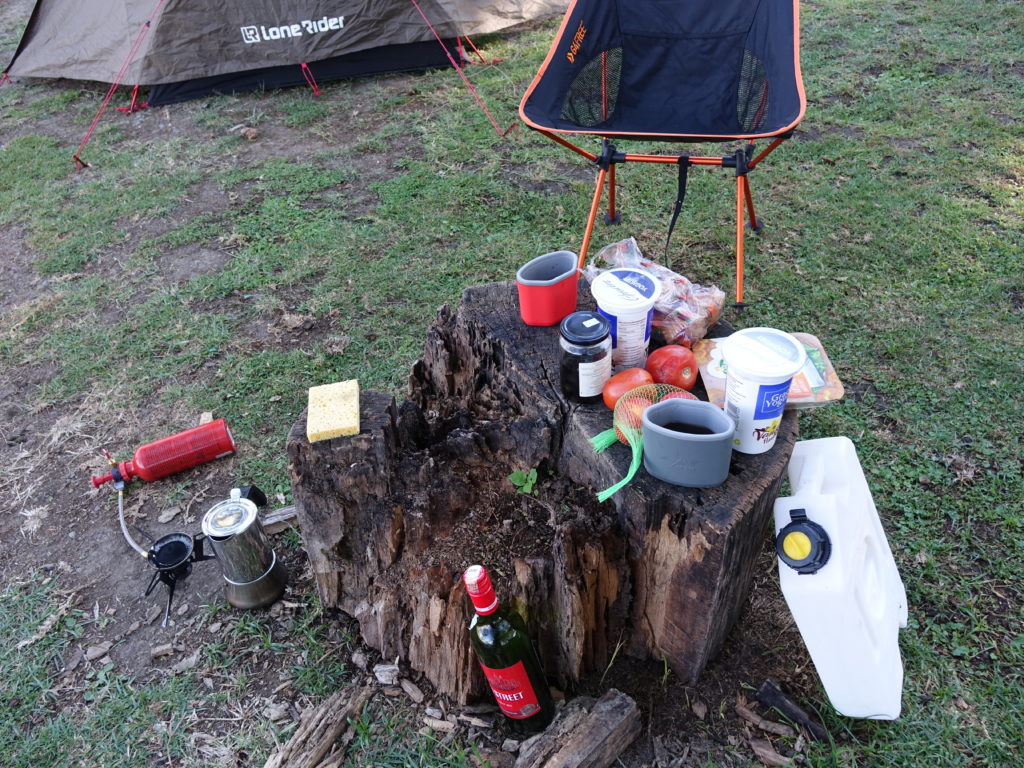
Suddenly I see a baboon running towards us at high speed. I shout “shit, here comes a monkey”, François wonders if I’m going crazy, having watched several reports about monkeys, I know he’s going to go for the food. I get up to chase it away while François takes his camera. At that moment he tells me: “there is another one”, and we realize that it is a complete family. Without us having time to react, one of them jumps on François’ motorbike and runs away with… No, I’m joking, he grabs our kilo of rice and runs away with it. I quickly put our lunch in François’ topcase. Then they rob our bin and climb the trees with their booty. A few minutes later our yoghurt pots fall from the trees. In order to be able to have a good lunch I pour our leftover rice from the day before at the foot of a tree. They come and eat it and we can have breakfast in peace. The monkeys disappear as quickly as they appeared.
Next day
We planned to go to Lake Baringo. What was not our desolation to note that the lake, like the previous ones, overflowed and flooded the road which bordered it. We try to get there by another access. A track filled with stones will lead us there, we will see the pink flamingos. This track is not marked on our GPS and we ask a group of children who have come to meet us to make sure that it does not end in a dead end. The children inform us that this is the only road since the lake flooded the old one. So we continue on this one. It is quite rough and forces us to keep a slow pace so as not to wreck the bikes and our luggage. We don’t regret having taken it as it offers us magnificent views of the lake and the mountains in the background.
We join a camp in Narok at the end of the day to celebrate Christmas. On the menu, salted peanut chips, raw carrots, pasta with tomato-mushroom sauce, and red wine. After our meal we will sit around the campfire with music. We are joined by a group of young Masai adults from the area, both boys and girls. They greet us with a fist check, which has become the international norm since the covid, and wish us a merry Christmas. We have another nice moment of exchange.
One of the questions from one of the young women: “In Europe when you travel, are you welcomed as a friend like here or does it lead to conflicts? I was very surprised by this question. I answered of course that no, there are no fights, and then I thought about it and realised that it was rare, not to say extremely rare, to be welcomed as a friend.
I think that as Europeans we can bring things to Africa. But above all I am convinced that we have a lot to learn from Africa in terms of human relations.
Christmas Day
We are a bit tired this morning. We decide to stay there one more day. We have to do our laundry. We get down to it and quickly realise how much work it is to do the laundry by hand. Heating the water with our stove, washing, rinsing, wringing out by hand, then hanging the clothes on the bushes. We will never look at the washing machine and dryer the same way again!
On this Christmas Day, many families come to the camp to celebrate Christmas with a good meal. There are a lot of people when we join the camp after having gone to do some food shopping. A radiant young woman comes to meet us, Nataniah. We spend more than an hour talking about Kenya, our trip, the importance of meeting different people, the importance of family, Belgium, music,… Another wonderful moment that we have the chance to live.
I dreamed this motorbike trip would be full of encounters and that’s exactly what is happening. I feel a sense of fulfilment
Next day
We plan a long stage on a track to reach Lake Magadi. We start on a corrugated iron track with a lot of stones. We have to constantly adapt our trajectory and speed in order to try to avoid the successive shocks which generate particularly unpleasant vibrations for us, but above all, which in the long run could damage our luggage racks. Finally the track becomes more rolling, François is having a great time, but I remain on the defensive because I am not yet sufficiently experienced to let go. Fast sections and technical scree slopes follow one another. The landscape becomes much greener. In the hills we pass several magnificent Massai villages built of wood and earth. After about 170 km of track, we are looking for our way, the only visible track being completely destroyed, probably by water run-off. It is not passable by motorbike. We enter a Maasai village to try and get some information on the track to follow. After a few discussions the decision is made. It is impossible to continue and we have to turn back almost to our starting point. We are a little bitter but there is no other alternative. I’m not too keen on doing all the scree slopes in the opposite direction. On the way back we decide to take a break for lunch, but as soon as we stop, monkeys appear. In view of our previous experience, we quickly put our helmets back on and set off in search of a quieter place. Finally we stop in a camp located at about twenty kilometres from our starting point. It is a superb camp in the middle of the bush, very well equipped with a hot shower and a clay boiler system with a wood burning fireplace. Simple and efficient. For the first time we use our freeze-dried food supplies. A pan of hot water and the meal is ready.
Next day
We have prepared a new route to the lake. After some food shopping we are back on the tracks. During a section of fesh-fesh that I try to negotiate standing up, I lose control, the bike goes all over the place and finally stops outside the track against a tree. No injuries, no damage. I put the first gear back on and try to restart, the rear wheel sinks inexorably into the sand, up to the swing arm. I’m stuck in the sand. François is in front, he’ll probably notice that I’m not behind him anymore and turn around. In the meantime I lay the bike down to get the wheel out of the sand and try to slide it out of the hole. Sliding a 280 kg motorbike alone is impossible. Francois joins me and with his help I am quickly back in the saddle.
After a long day we arrive at Lake Magadi. We are stopped by some young people, we don’t really understand what is going on. They want us to pay some kind of tax for the community. After some discussion we understand that they are trying to extort money from us. It’s a bit tense and finally we get out of this mess. Given the situation, we don’t really want to stay there. We decide to go to a camp 30 km away. We don’t want to delay and we don’t want to ride at night. We quickly get back on the road and drive on a track that crosses the lake. The landscape is more desolate than cheerful. At the bend in the track we have a surprising encounter, three magnificent giraffes that pass in front of us, what elegance and beauty.
We are now close to the camp, but we can’t locate it. We have less than an hour before it gets dark and we are off-road in the bush. The situation is starting to get tricky. We are accosted by a guard who asks us what we are looking for. We explain that we are looking for the camp and he offers to take us there. Phew saved, we follow him. He takes us to the river bank and tells us this is it. We are stunned. We repeat our request and he takes us to another place along the river. We finally get out of the way and turn back to the track. The guard and his friend follow us on their motorbikes. We try to find the camp without success. Now we have less than half an hour before nightfall and we have no idea where we will spend the night. We already imagine ourselves sleeping sitting against the bike at the edge of the track. In desperation we ask the guard again to take us to the camp and he takes us along the river again and asks us to pay him. This time it was too much and we went back to the track. There we called the camp number and Joseph answered. We tell him where we are and he comes to meet us on his motorbike.
Now it is dark, he asks us to follow him back to the camp. He rides at full speed on a track full of holes and protruding stones. François follows him, I can hardly follow with the dust, I can’t see anything of the track. I fix my eyes on François’ red light, hoping not to hit a stone. It lasts about ten minutes, which seems like an hour. And then, I’ll give you one thousand words, we find ourselves along a river. We have no choice but to spend the night there. We understand later that there is no camping in the area. Joseph offers us to take care of the fire and he goes to get us some beer. Finally we spend a pleasant evening with Joseph.
The night will not be very restful, the baboons perched in the trees above our camp, shouted all night. They took the opportunity to take our eggs and our two twix (or maybe François ate them during the night and is blaming the baboons?) In the morning at breakfast Joseph joins us, he informs us that the guard we saw yesterday has contacted him and that he says we owe him money. That’s enough, we decide to pack up and leave this region where ripping off tourists seems to be the norm.
Direction Lake Amboseli…
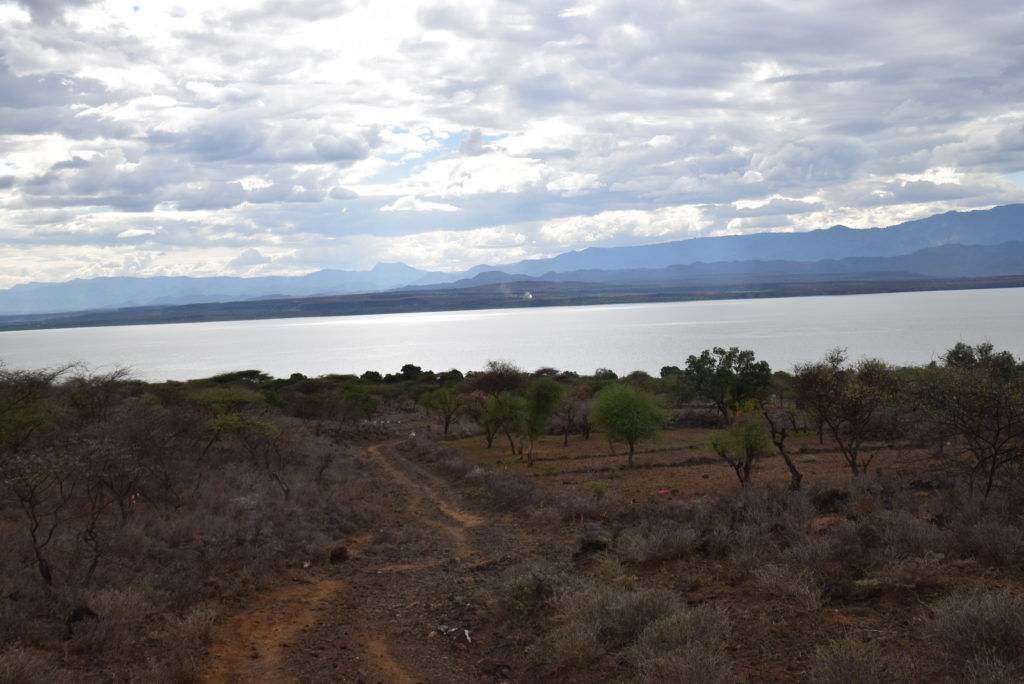
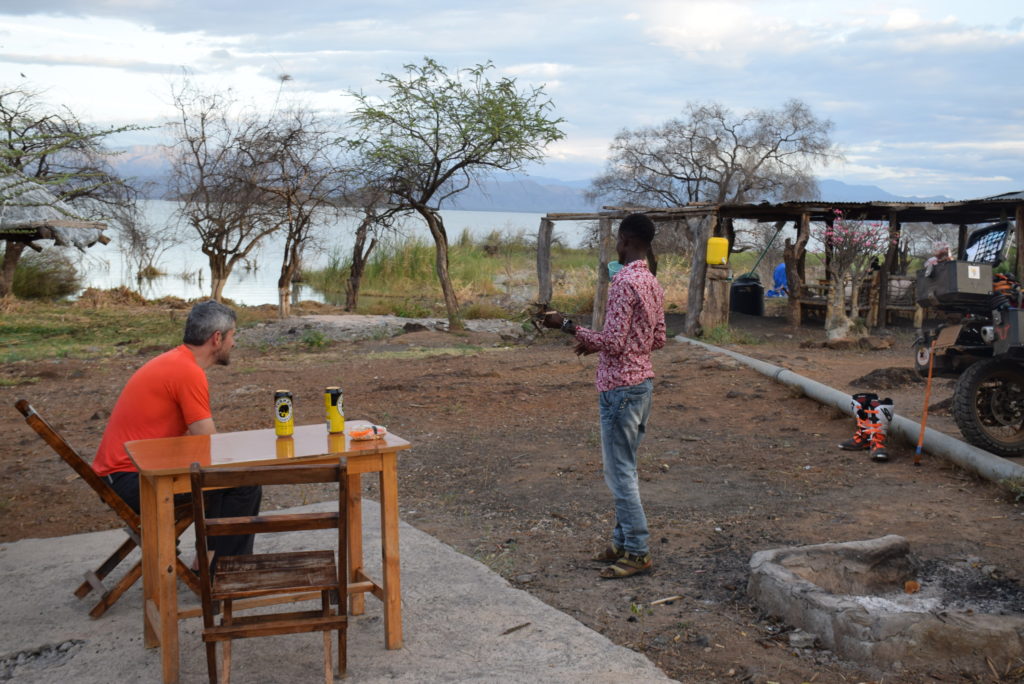
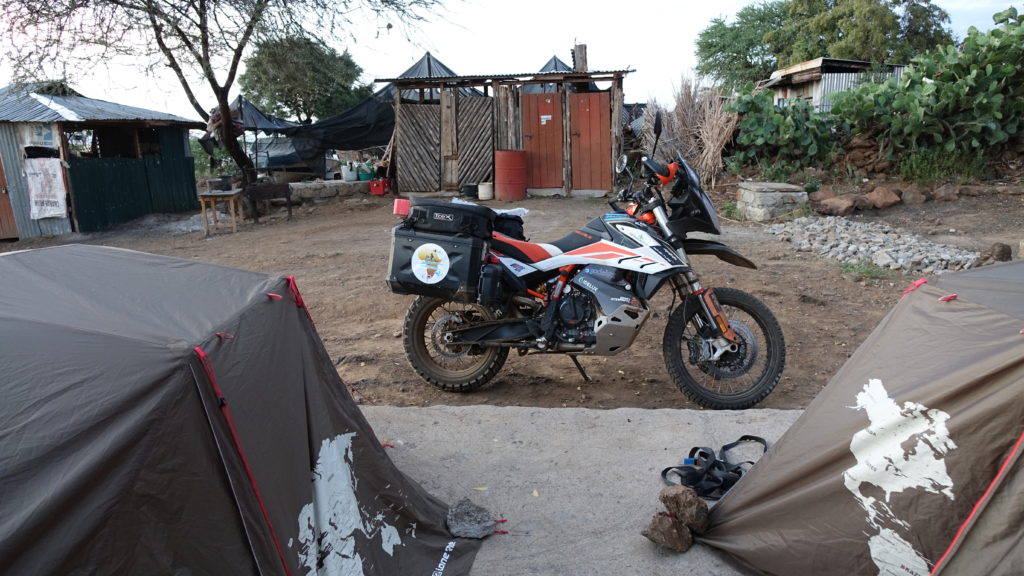
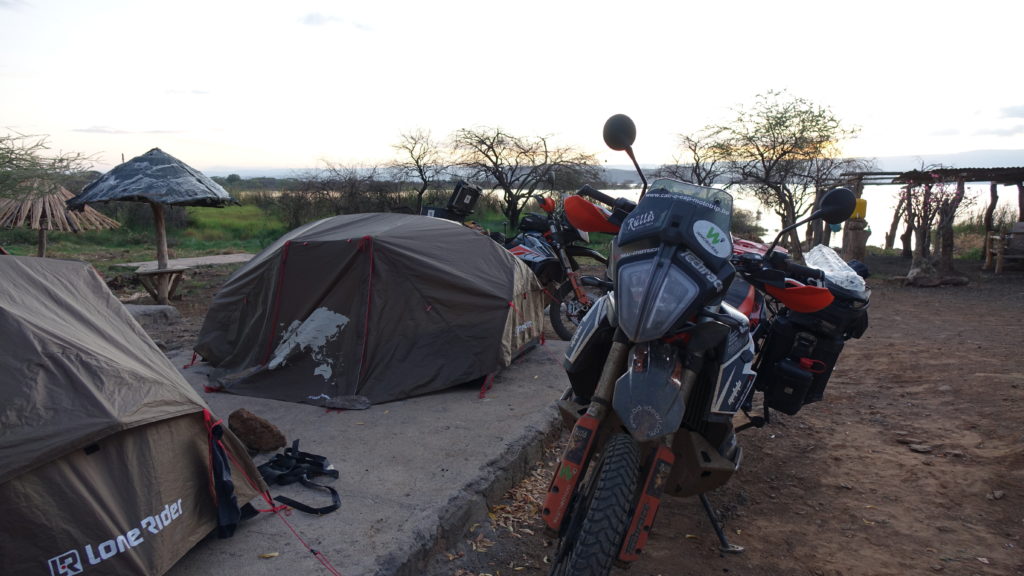
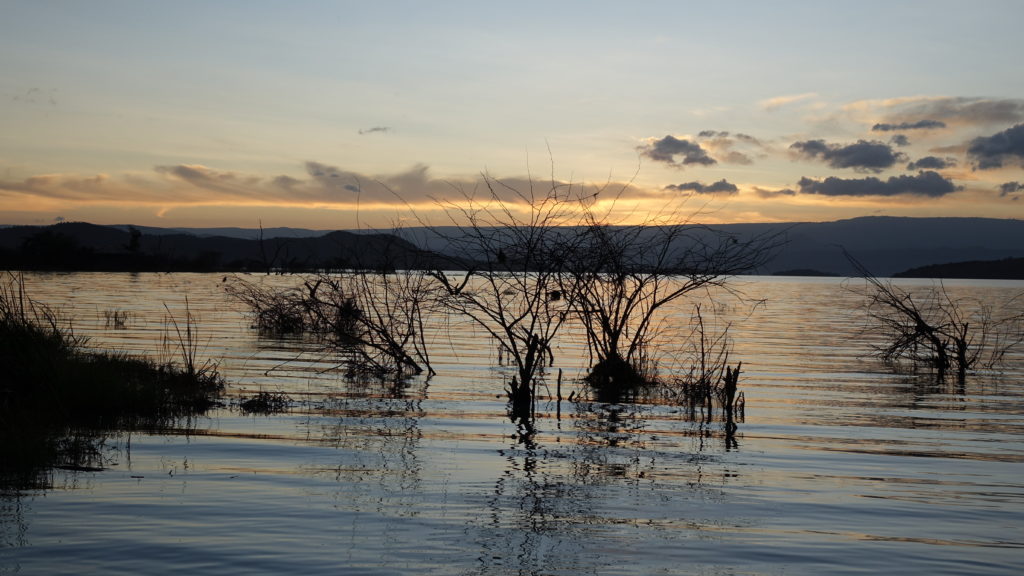
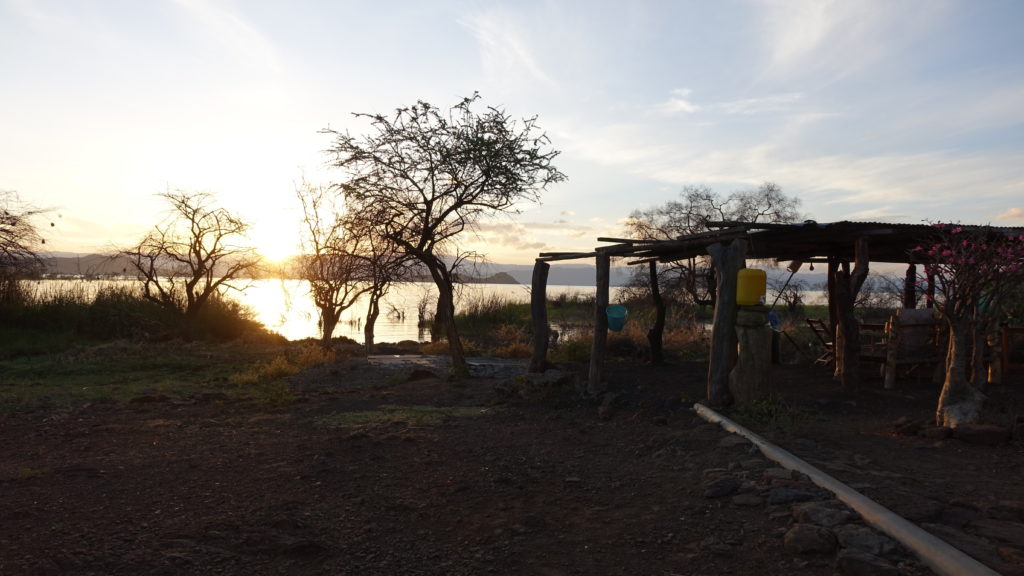
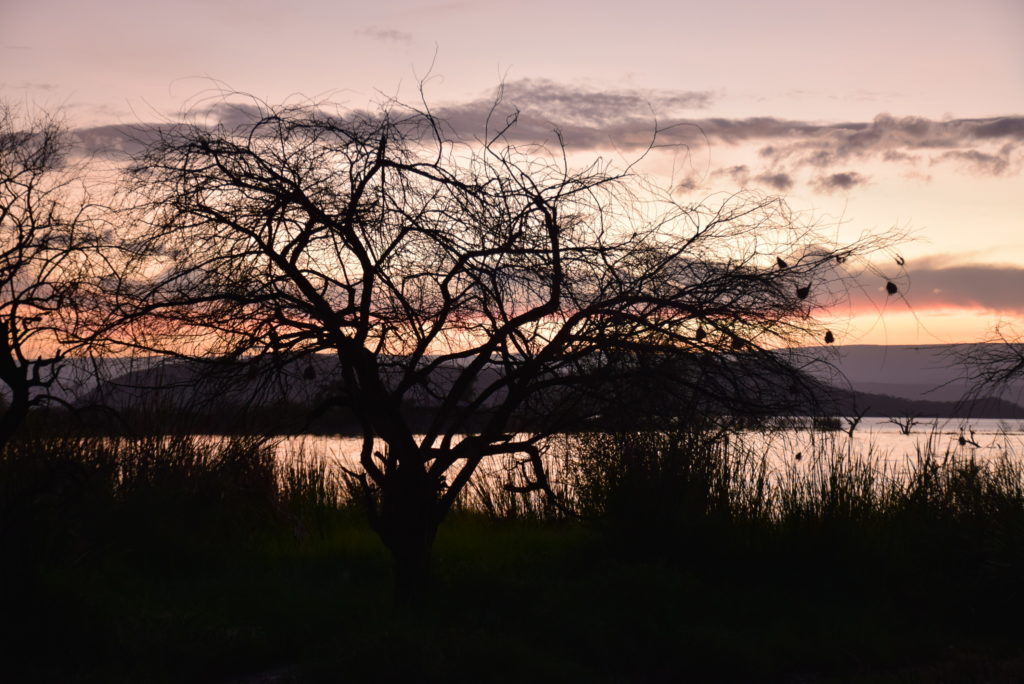
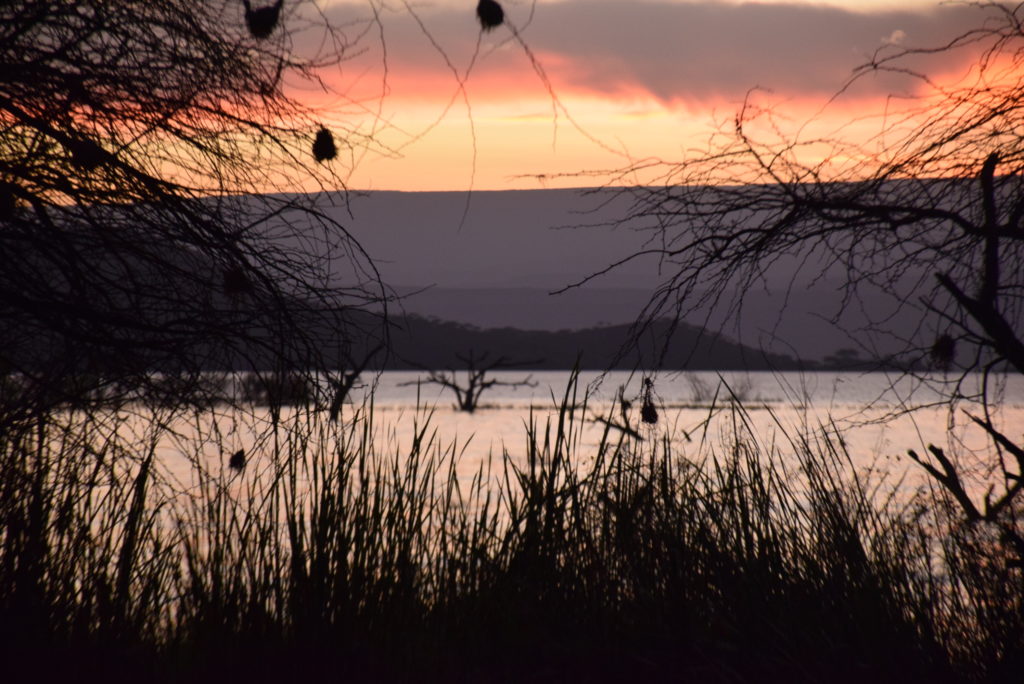

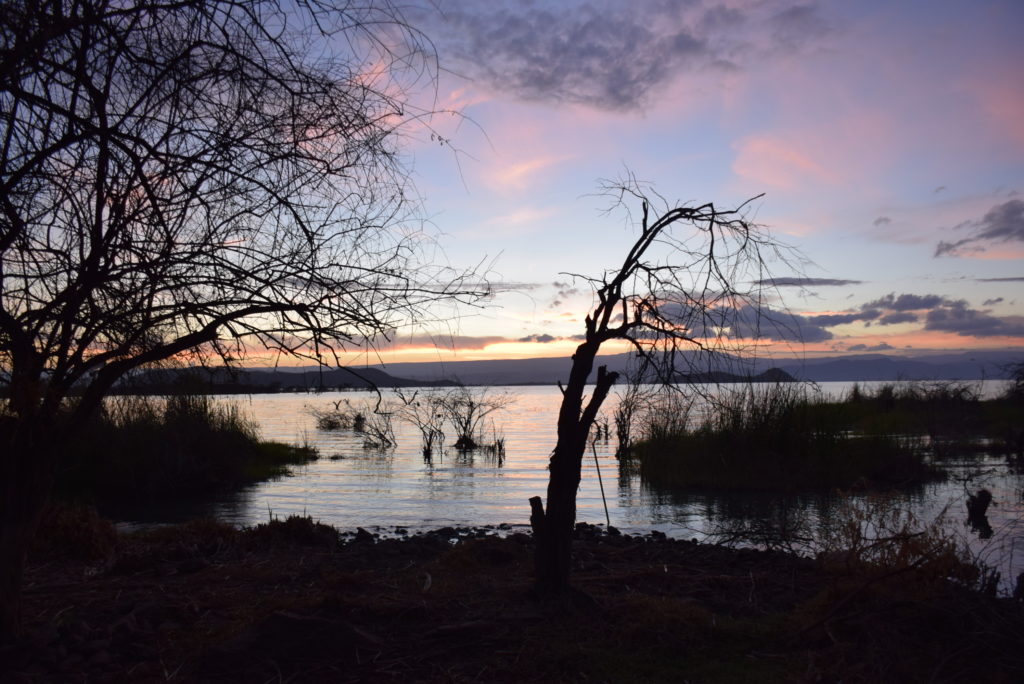
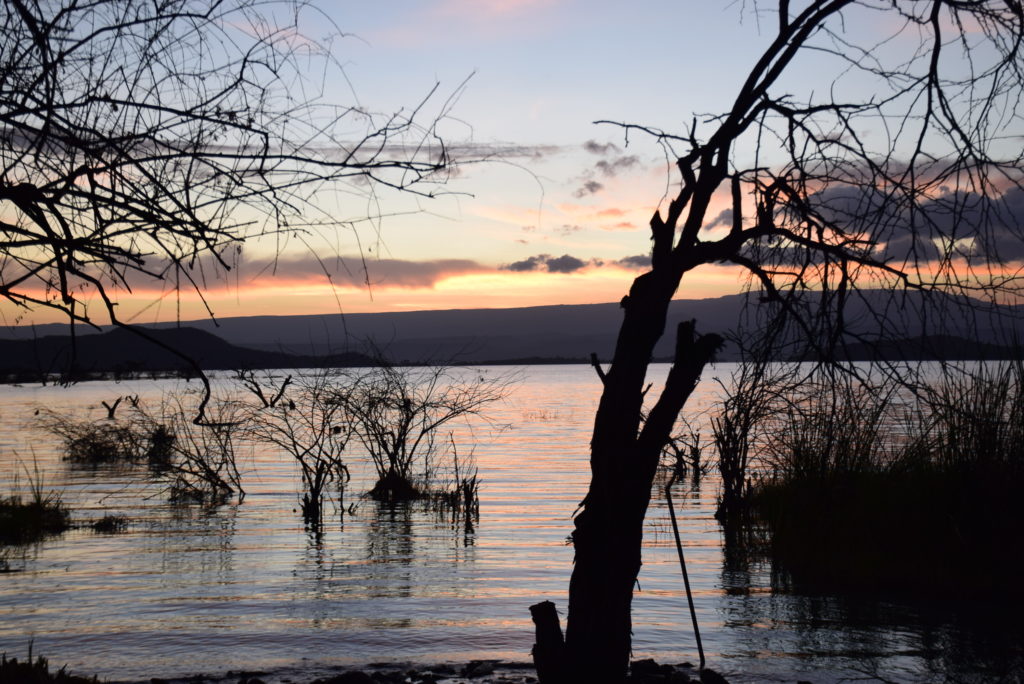
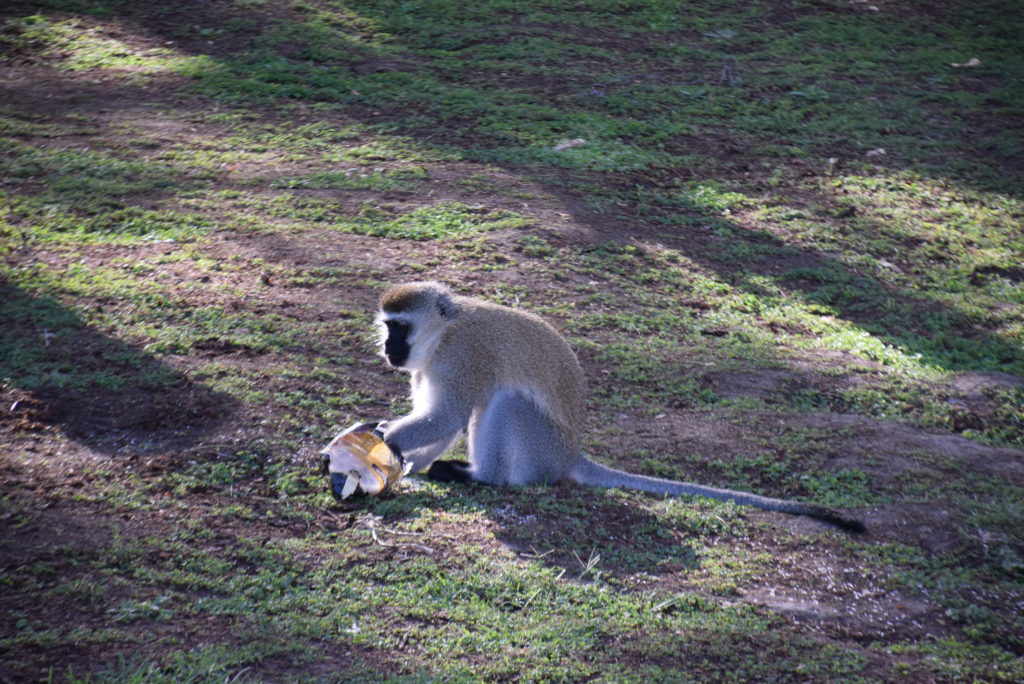
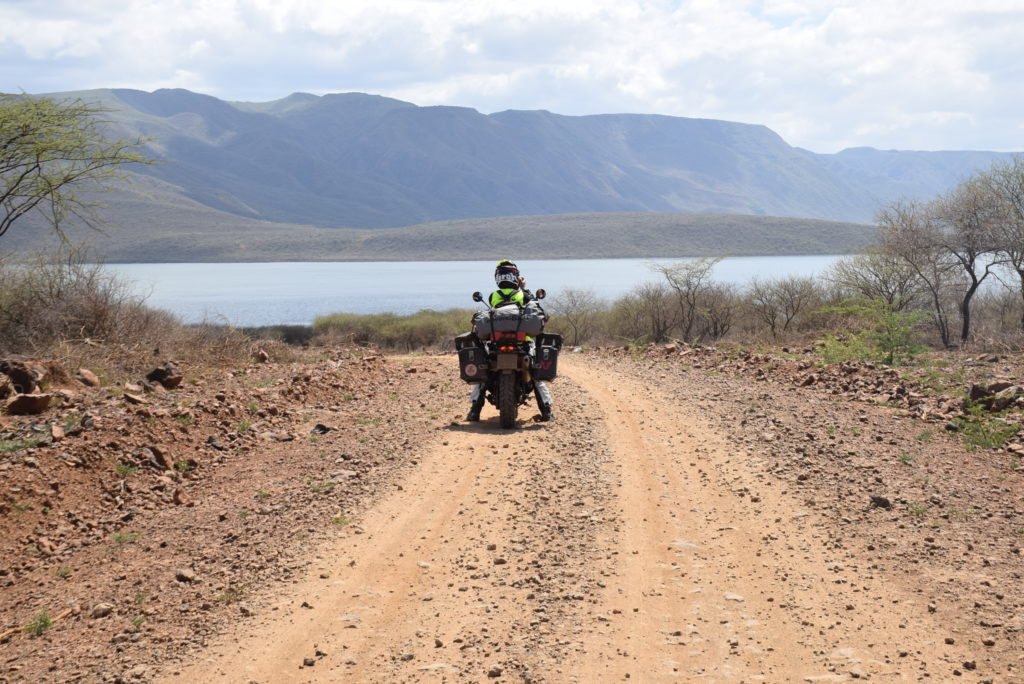
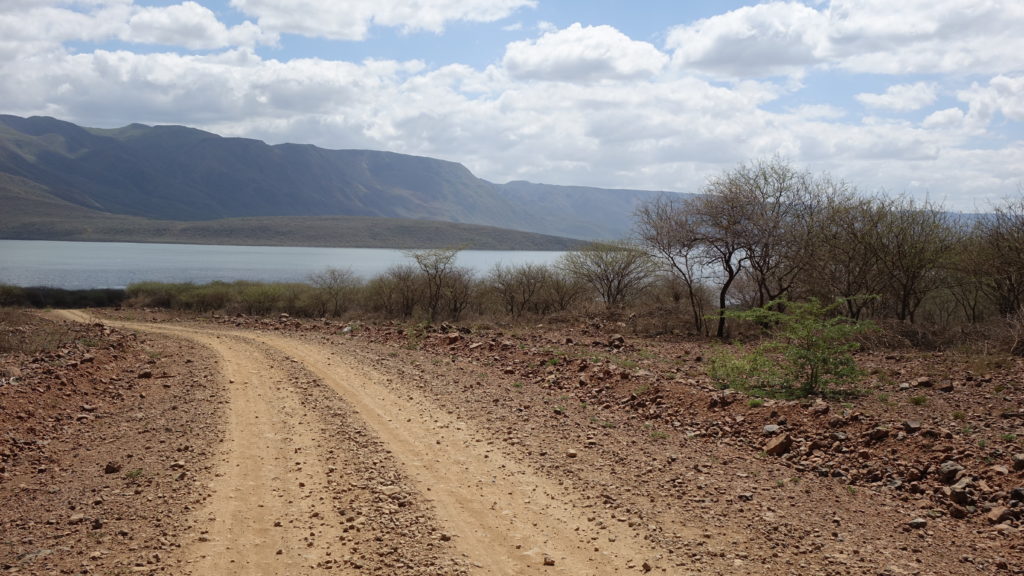
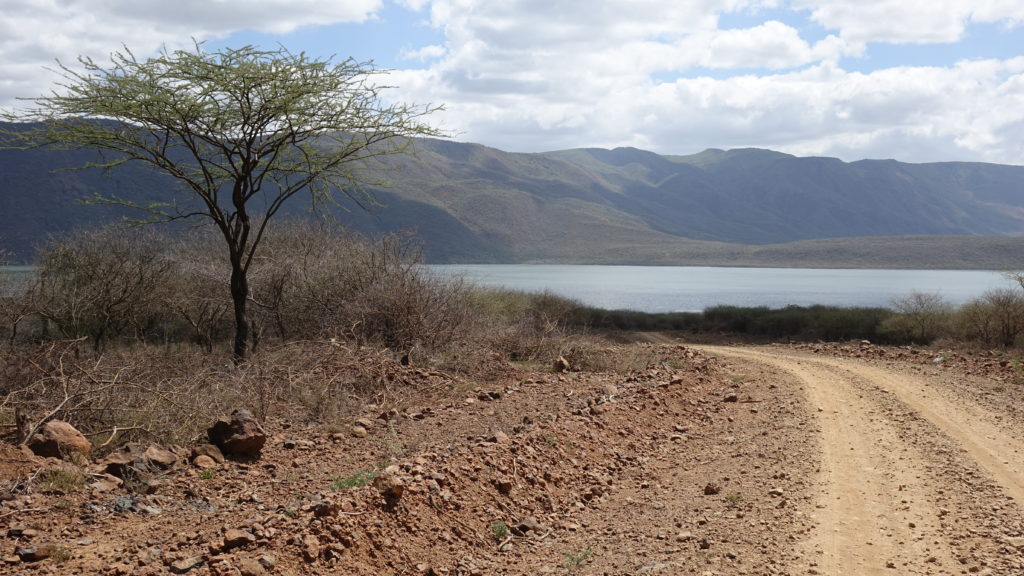
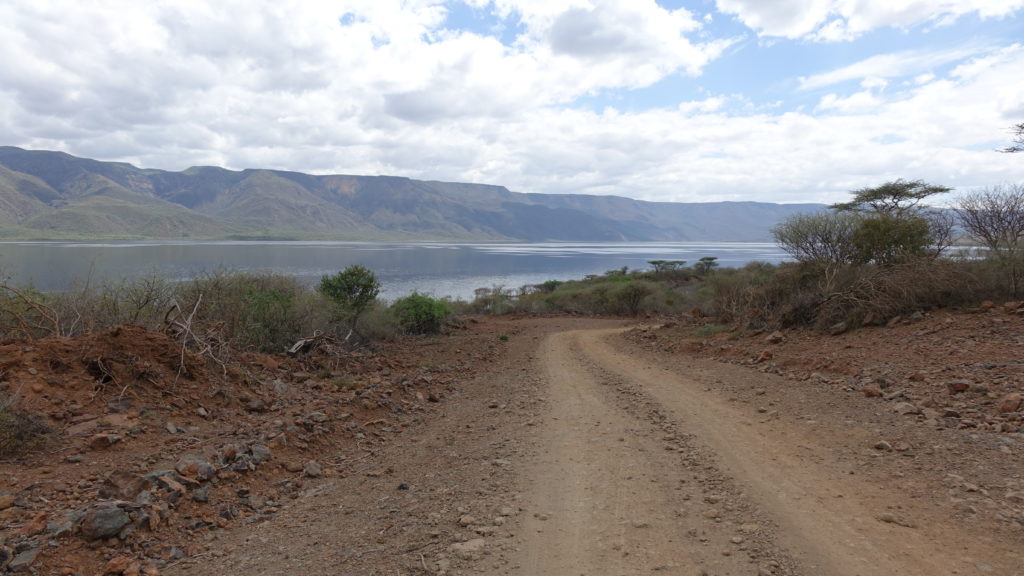
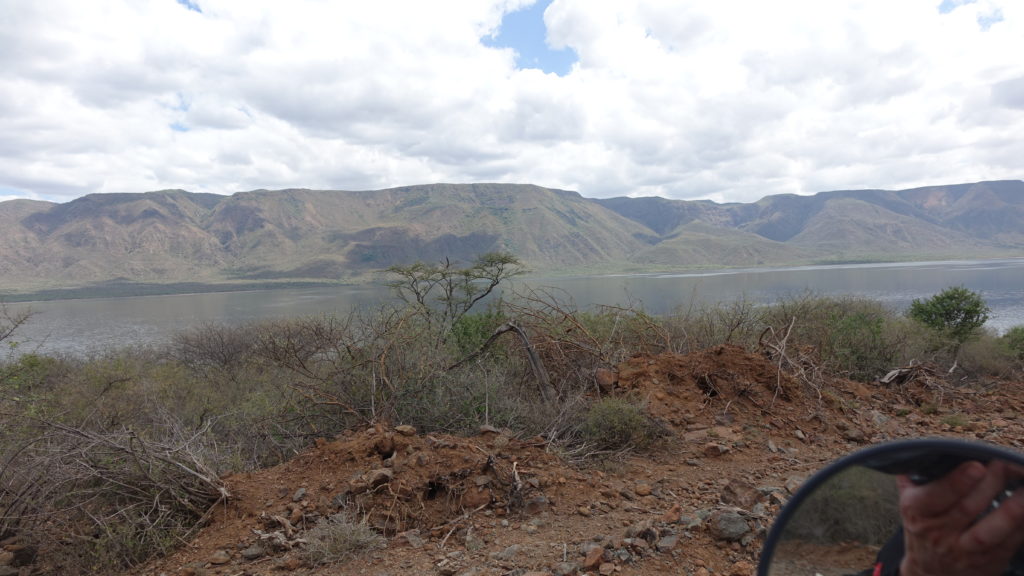
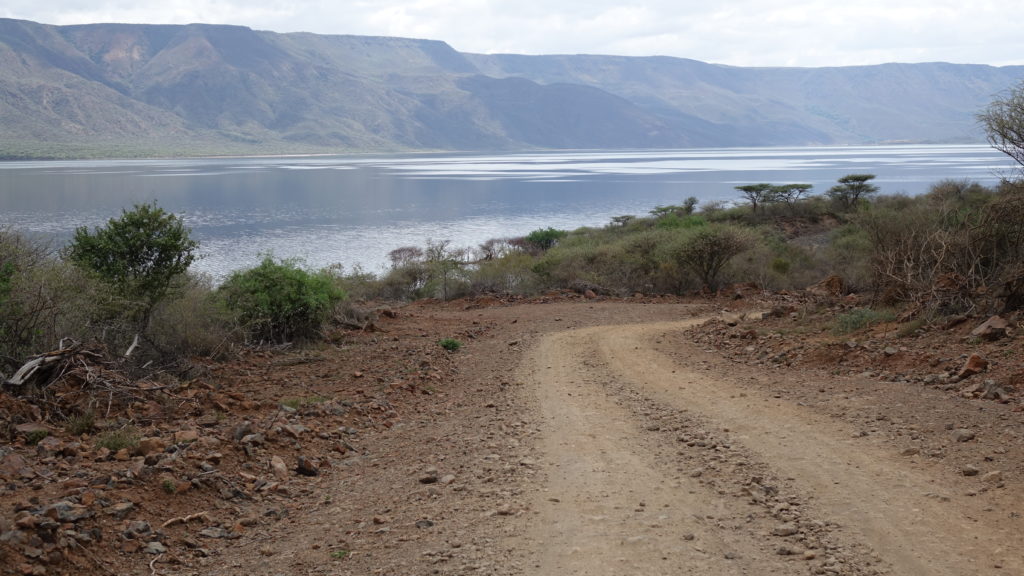

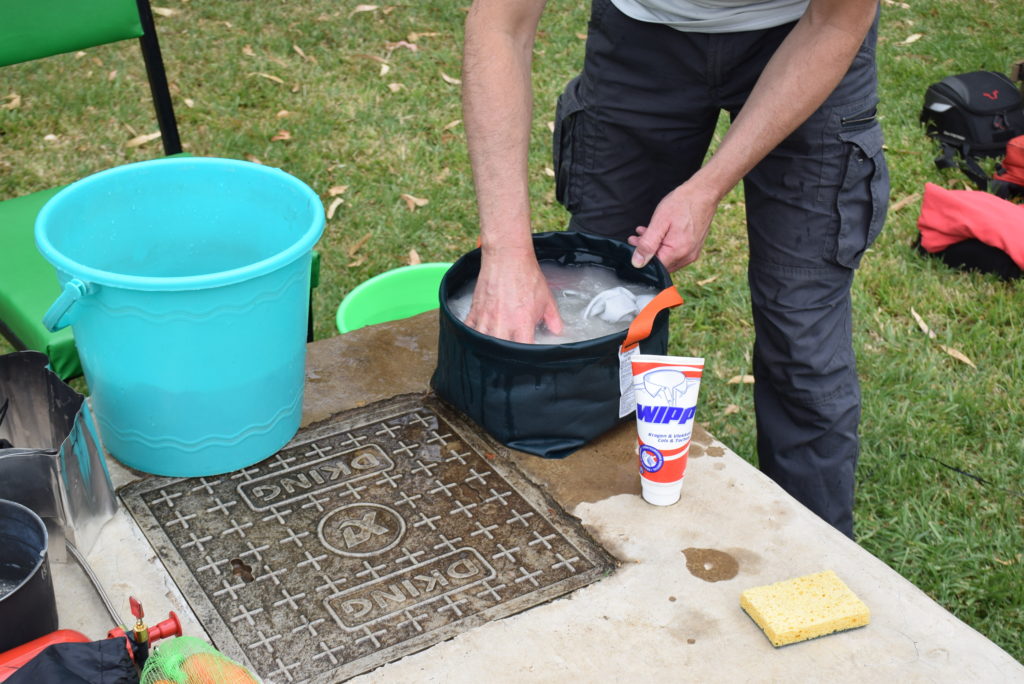
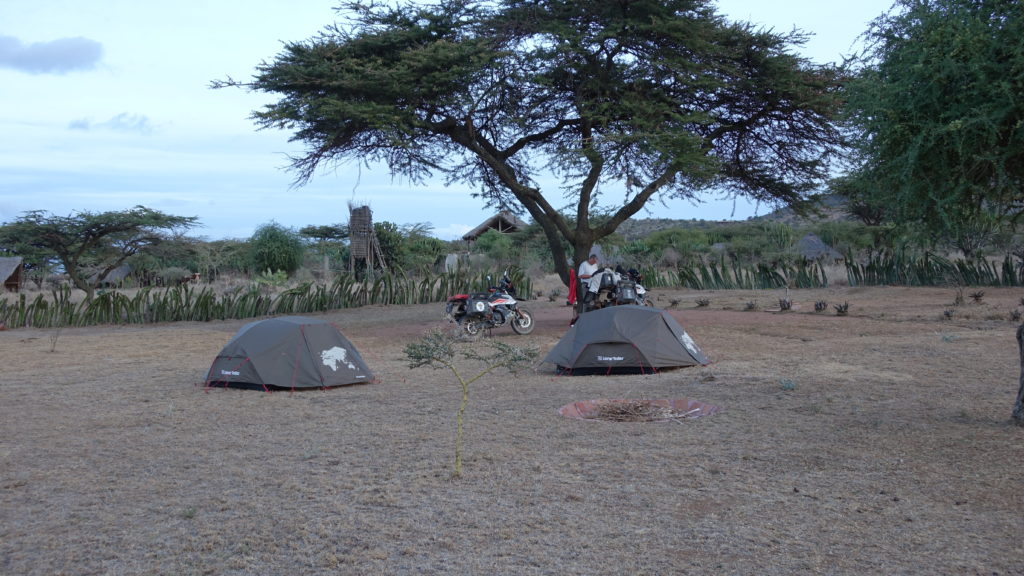
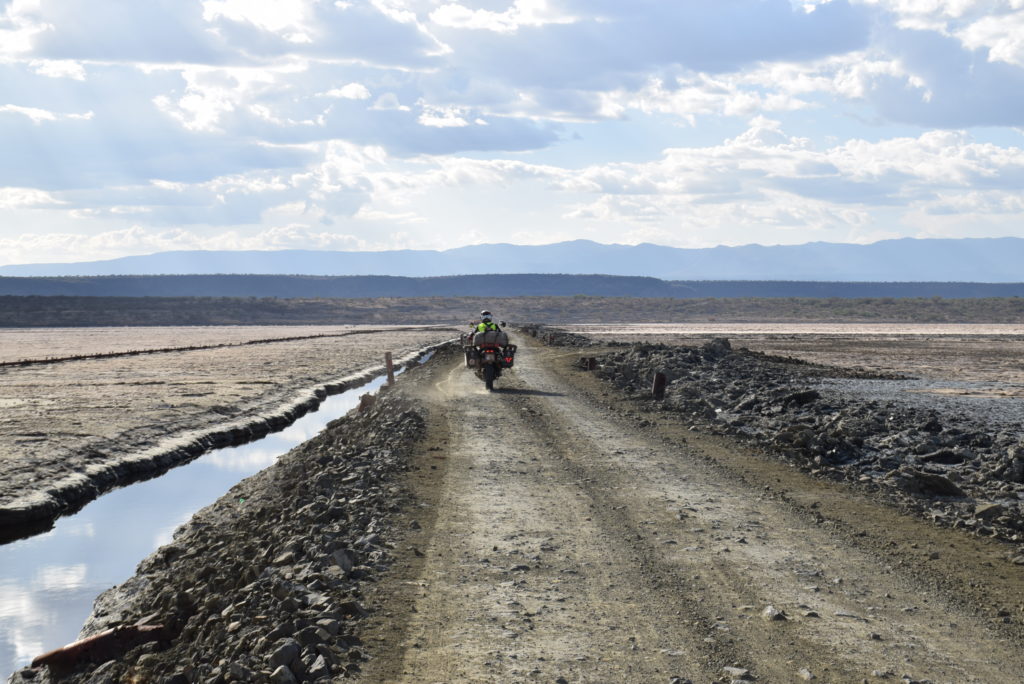
It is nice to start 2022 with a good road trip story or is it a ‘off road’ trip story 😉
good luck with your adventure .